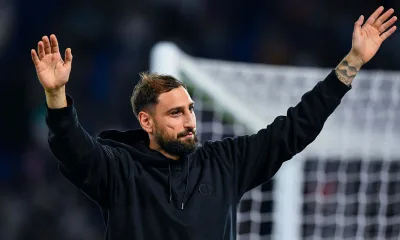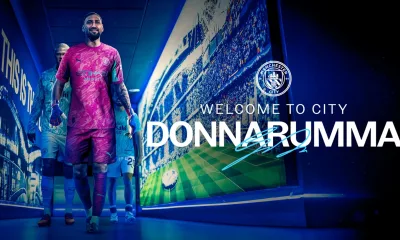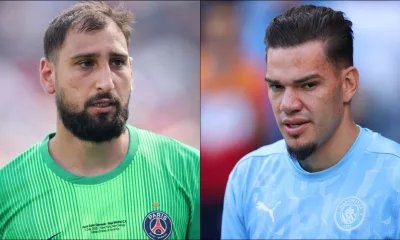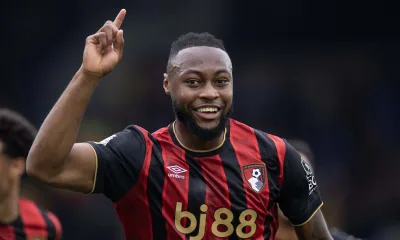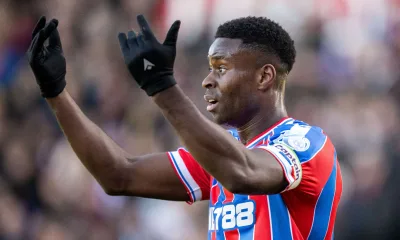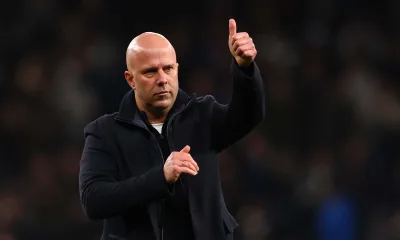Premier League
Donnarumma’s PSG future uncertain after Chevalier arrival
Uncertainty surrounds Donnarumma at PSG after Chevalier’s arrival; contract talks remain unresolved.
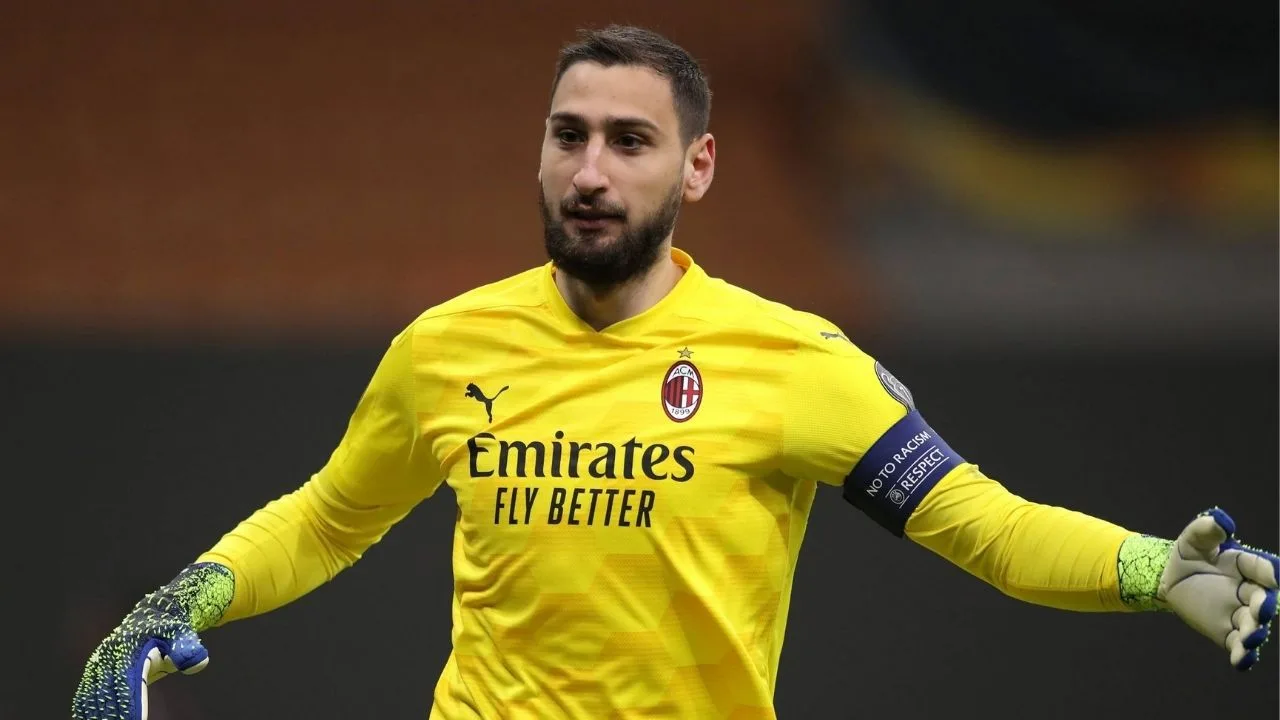
Gianluigi Donnarumma, the 26-year-old goalkeeper who joined Paris Saint-Germain in 2021 with a contract running until 2026 after his contract with AC Milan ended, finds his future the subject of speculation. With no contract extension yet agreed, talk of a departure has grown louder since Lucas Chevalier, 23, of Lille and the French national team has certainly signed to replace him.
Le Parisien provided an update this Monday morning on a situation described largely by uncertainty. There is a lack of concrete information and no certainties to report. His agent and he have repeated several times that he would like to extend his contract. Maybe not under the same terms, but that was still the idea. The arrival of Chevalier could well disrupt these plans.
Remaining at PSG for one more year to keep options open, and to negotiate a better deal, is presented as a possible route. That option carries sporting risk and would not be comfortable. There still needs to be an exit route that fully appeals to him this summer. The Premier League is tempting, but it also requires a project that interests him. Nothing is impossible, nor confirmed at this point.
From PSG’s perspective a departure could be simplified by setting a more accessible price than the value at which they currently rate Donnarumma, which would be logical with only one year left on his contract. There is also a hefty salary to offload rather than keeping him in the squad for “underuse.” Unless coach Luis Enrique wants full competition, but that is difficult for this position.
At present the narrative remains unresolved. Reports note competing considerations on both sides and no definitive outcome.
Man Utd
United Preparing Major Midfield Overhaul with Goretzka Among Targets
United plan major midfield additions this summer; Leon Goretzka is a reported possible target this.
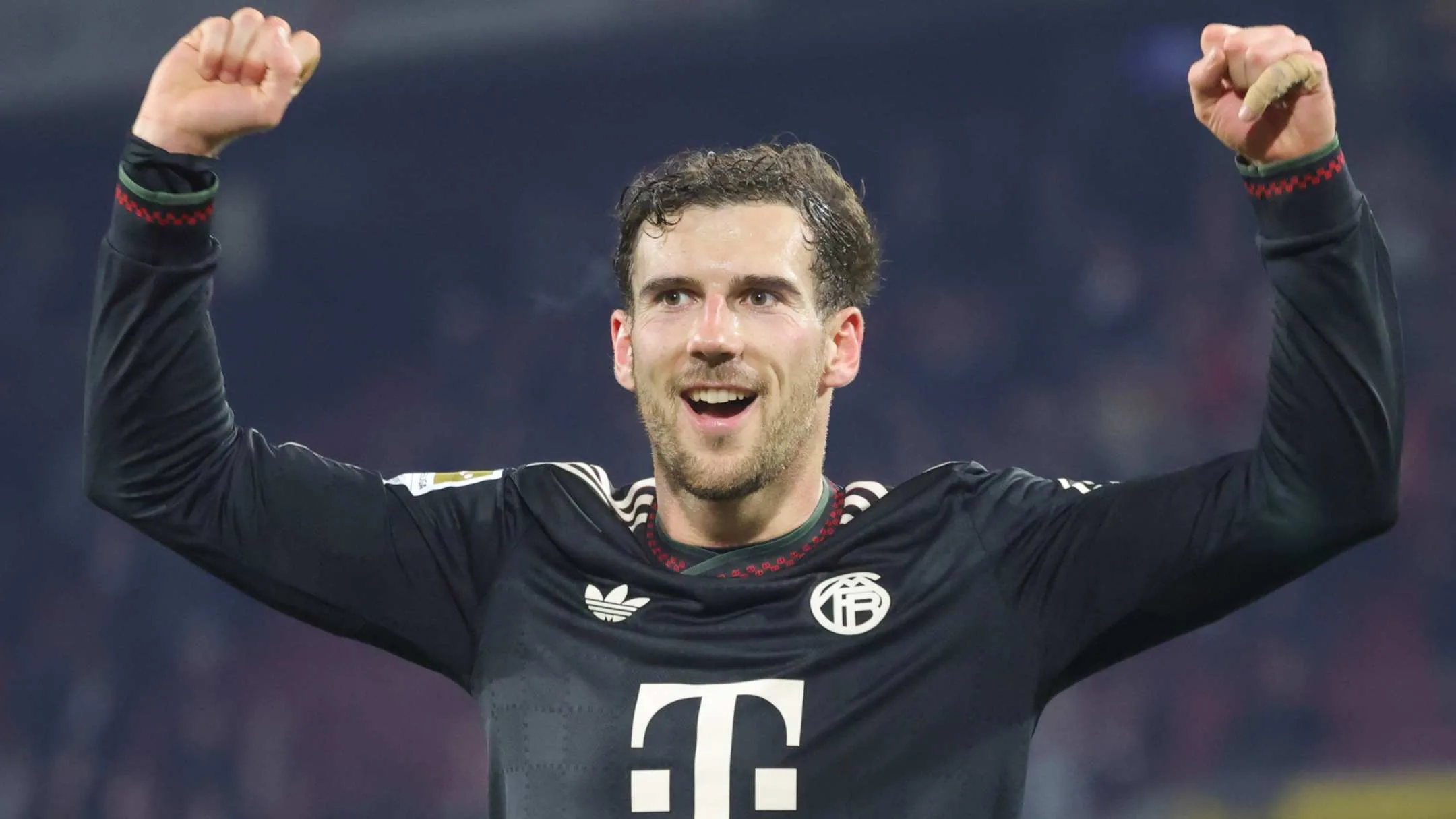
Manchester United are reported to be preparing a substantial midfield overhaul this summer, with the club said to be willing to “go very big” on central reinforcements. The plan could involve two marquee arrivals and has placed soon-to-be free agent Leon Goretzka firmly on the radar.
Goretzka spent eight seasons at Bayern Munich after joining on July 1, 2018. Arriving from Schalke as a wiry all-rounder, he bulked up during the COVID-19 hiatus and returned with a markedly different build. The 6’2″ midfielder described himself as “more self-confident and more robust.” He added: “Going into full-blooded challenges feeling like that gives me a greater sense of security.” Under Hansi Flick he drove Bayern to the 2019–20 Bundesliga title and a Champions League triumph.
Across his Bayern spell the record shows Joined: July 1, 2018; Games: 292; Goals: 47; Assists: 48; Titles: x6 Bundesliga, x1 Champions League, x2 DFB Pokal, x1 Club World Cup, x1 UEFA Super Cup. Injuries disrupted the following two seasons and, when Thomas Tuchel arrived in 2023, the new coach immediately sought to move him on that summer. Bayern’s board retained him, but reduced playing time followed and that decline cost him a place at the 2024 European Championships held on German soil.
Vincent Kompany initially shared Tuchel’s lack of faith before reintegrating Goretzka and praising his response: “Leon has always worked hard, he’s always been hungry in training,” and, “It’s a good thing for Leon and the other lads. Leon showed the right reaction: with his feet, not with words.”
United, despite an upturn under Carrick, still need a central midfield replacement for the outgoing Casemiro. Manuel Ugarte had been the ideal profile but appears not to be the solution. Goretzka’s more front-footed profile would likely complement one of the three midfield targets United have been circling for months: Elliot Anderson, Adam Wharton and Carlos Baleba. Anderson is described as arguably the most complete of the trio, though his dominance may reflect both his talent and his teammates’ limitations, and all three are expected to command substantial fees.
Analytics & Stats
Salah becomes first player with 152 goal contributions at one Premier League stadium
Salah reached 152 goal contributions at one Premier League ground, overtaking Henry and Rooney. 2026
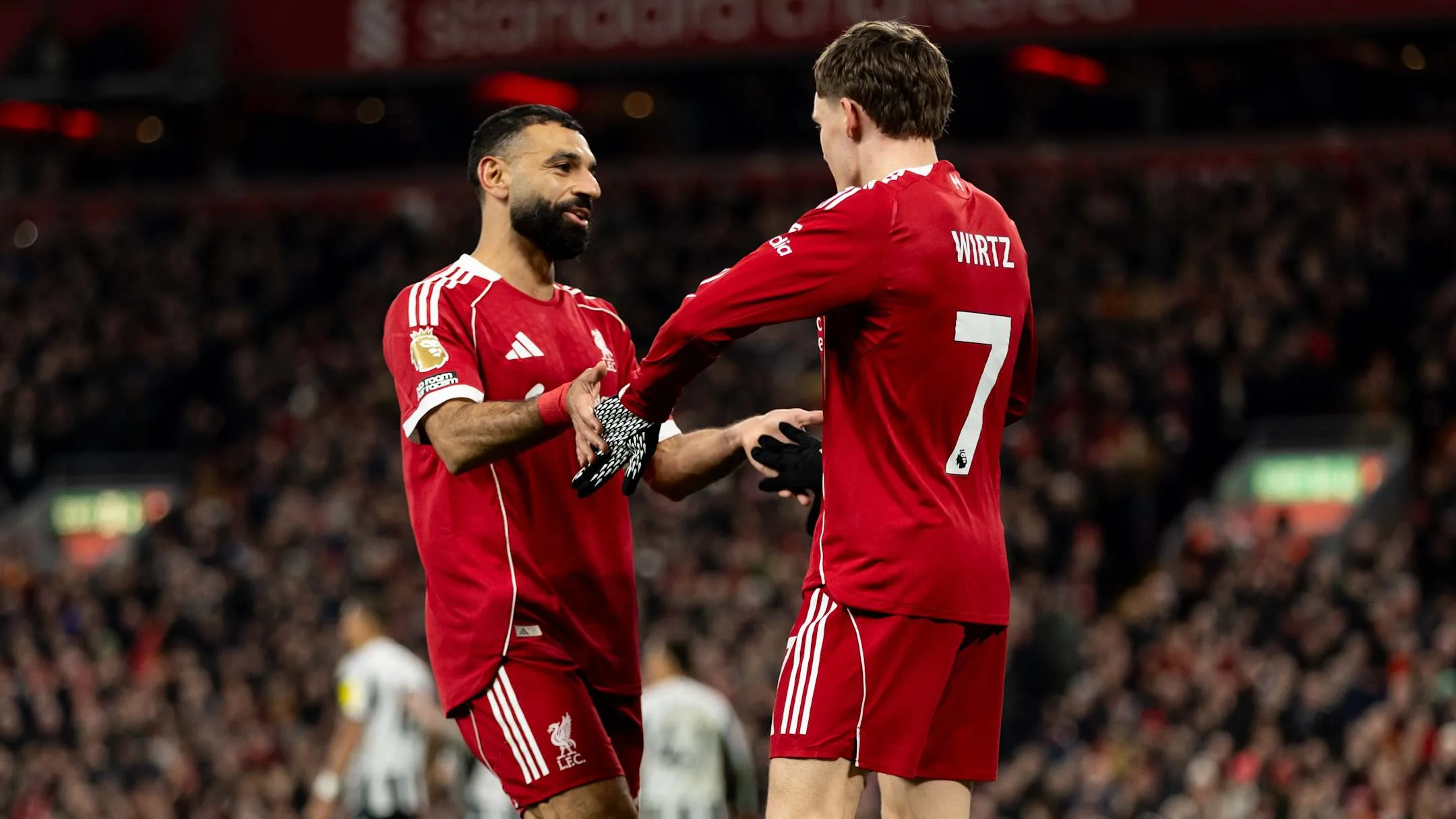
Mohamed Salah set a new Premier League benchmark when he reached 152 goal contributions at a single stadium during Liverpool’s 4–1 thumping of Newcastle United on Saturday. That total places him ahead of the previous record of 151, which was held jointly by Thierry Henry and Wayne Rooney at Highbury and Old Trafford respectively.
Salah’s tally at that ground is compiled from 107 goals and 45 assists, producing the 152 figure that now stands alone at the top. Thierry Henry’s total there was 114 goals and 37 assists for 151, while Wayne Rooney recorded 101 goals and 50 assists for the same combined total.
Mohamed Salah
Goals 107
Assists 45
Total 152
Thierry Henry
Goals 114
Assists 37
Total 151
Wayne Rooney
Goals 101
Assists 50
Total 151
Beyond the stadium-specific milestone, Salah remains on course for other career landmarks in the Premier League. He is fourth on the all-time scoring list with 190, 18 behind Wayne Rooney’s 208 and behind Alan Shearer and Harry Kane. Whether he can move up into third depends on form and remaining fixtures: Liverpool have 14 Premier League games left and Salah has scored four goals in 16 outings this season.
Player
Goals
Alan Shearer 260
Harry Kane 213
Wayne Rooney 208
Mohamed Salah 190*
Andrew Cole 187
*stats correct as of Feb. 1, 2026
The past 18 months have been full of broken records for Salah and have strengthened his standing in Premier League history. The clock is ticking for Salah and it is not yet clear how long he has left to rack up the numbers. His current contract says 18 months but his tense relationship with manager Arne Slot may suggest otherwise.
Analytics & Stats
Salah sets unique Premier League record with 152 goal contributions at one ground
Salah reached 152 goal contributions at one ground, surpassing Henry and Rooney’s 151 totals Feb. 1.
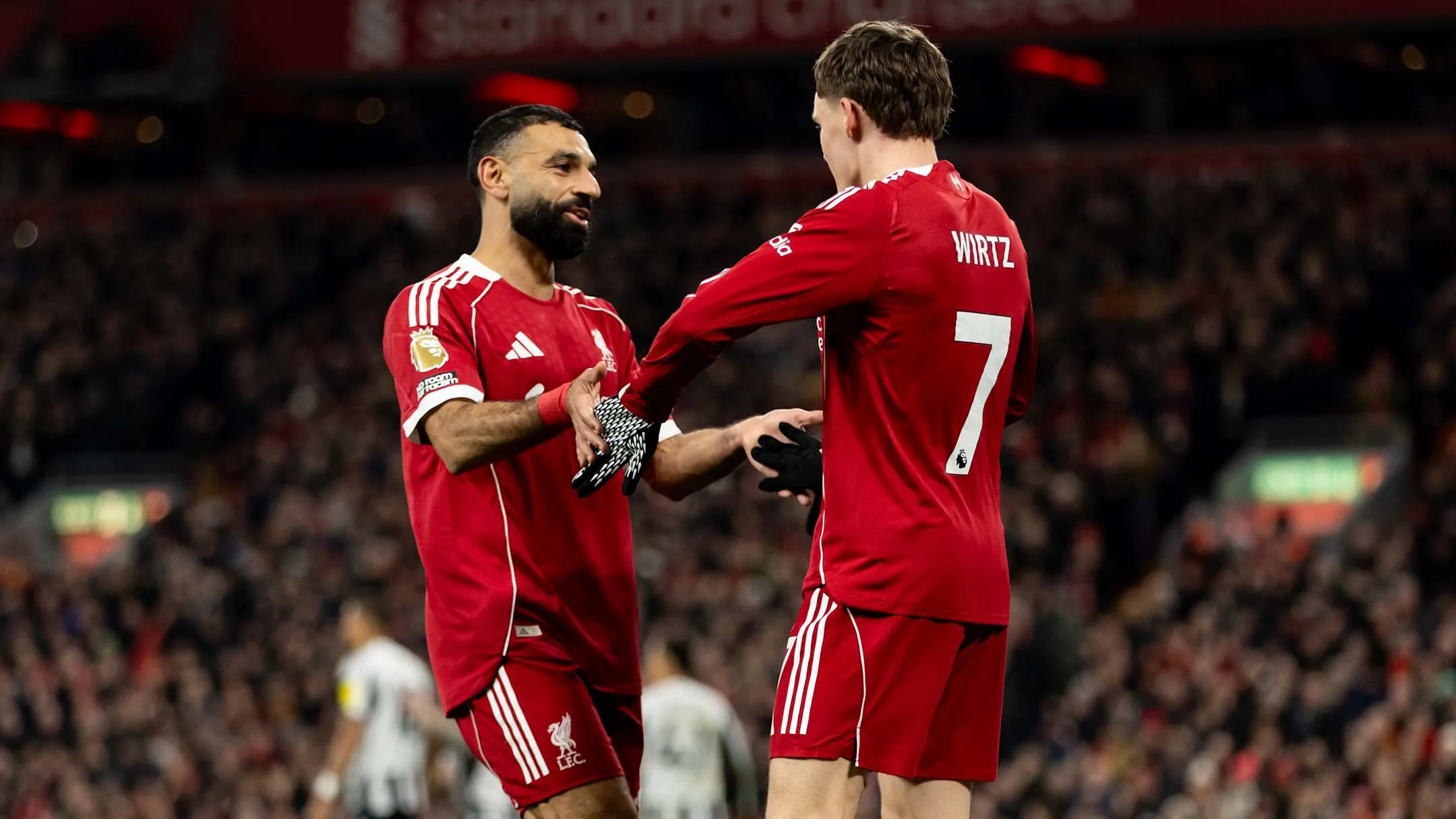
Mohamed Salah became the first player to register 152 goal contributions at a single Premier League stadium during Liverpool’s 4–1 thumping of Newcastle United on Saturday. That total moves him past the previous high of 151, a mark held jointly by Thierry Henry and Wayne Rooney at Highbury and Old Trafford respectively.
Salah’s landmark is the product of sustained output for Liverpool over several seasons. The numbers at that ground break down as 107 goals and 45 assists, producing a combined total of 152. By comparison, Thierry Henry recorded 114 goals and 37 assists for 151, while Wayne Rooney had 101 goals and 50 assists, also 151.
Salah
Goals
Assists
Total
Mohamed Salah
107
45
152
Thierry Henry
114
37
151
Wayne Rooney
101
50
151
Beyond this stadium-specific record, Salah is also tracking career scoring milestones in the league. He sits fourth on the all-time Premier League scorers list on 190, 18 behind Wayne Rooney’s 208 return and behind Alan Shearer and Harry Kane. Whether he can climb into third remains an open question given Liverpool have 14 Premier League matches left and Salah has scored four goals in 16 appearances this season.
Player
Goals
Alan Shearer
260
Harry Kane
213
Wayne Rooney
208
Mohamed Salah
190*
Andrew Cole
187
*stats correct as of Feb. 1, 2026
The past 18 months have been full of broken records for Salah, reinforcing his standing in Premier League history. The clock is ticking for Salah and it is not yet clear how long he has left to rack up the numbers. His current contract says 18 months but his tense relationship with manager Arne Slot may suggest otherwise.


